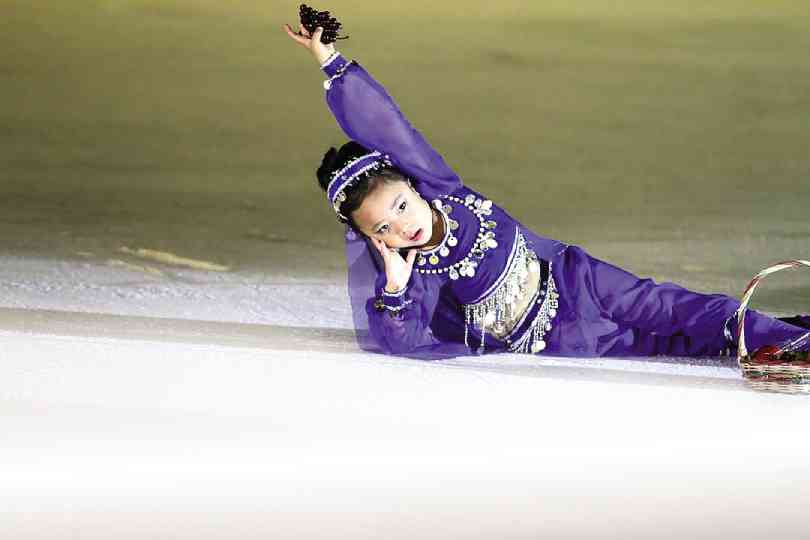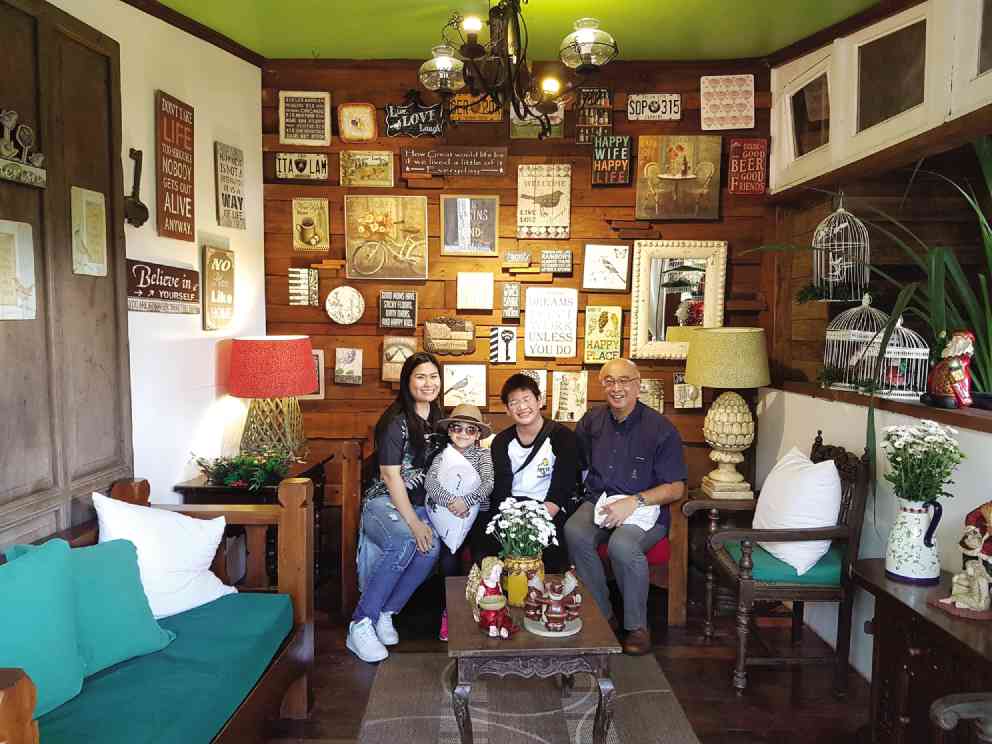When skating’s child play
All those jumps, flips, spins, loops, and other figure skating moves may appear difficult, but not to six-year-old Arielle Pascual, the reigning national champion in her age group.
Such scintillating moves come naturally and flawlessly to this tyke who has won a string of figure skating competitions here and abroad over the last two years.
“Her biggest strength is her power of concentration,” says her father, Allen Pascual, a retired banker who now does consulting work for a major multinational insurance firm in the country. “Aside from her athleticism, she can concentrate.”
“She’s quick to pick up the fundamentals,” says her mother Michelle, a former figure skating champion and coach-turned-fulltime homemaker and mentor to Arielle.
The Grade 1 pupil at St. Pedro Poveda College in Mandaluyong City has won the most number of gold medals among young local skaters.
Arielle, the youngest skater to win a national championship, bested older participants with her sterling performance that her parents credited to a sustained regimen of practices and exercises, enabling her to master the skills expected at every level of figure skating.
Skating rink
Although figure skating originated in Europe and is a relatively new sport in the Philippines, a tropical country with no snowfall, there are skating rink facilities in several malls where figure skating competitions are held.
Ice skating moves vary and can range from simple forward glides to backward flips. There are also jumps combined with intricate rotations. In figure skating competitions, judges base their scores on a set of criteria to include quality of execution, techniques, speed, height, and flow on ice.
Arielle started young, says her mother, adding that she and husband Allen never forced their daughter to pick up the sport that she now considers child’s play. The girl was two and a half years old when she saw her mother’s skating competition medals. Probably attracted to their colors, glitter, and metallic shine, she asked Michelle if she could have them.
“No, sweetheart, those medals were earned,” Michelle told Arielle. “That was how she got the idea to participate in competitions to earn her own medals,” her father says.
Sooner than expected, Arielle got her first pair of figure skates from her supportive parents. She then started practicing on her own, surprising her parents with her sharp learning curve.
Seeing her confidence, skills and innate talent, her parents hired professional coaches to guide their precocious child. Among them was Rosalyn Benitez, the comely coach of several figure skaters who later became rated competitors and national champions.
Three golds
Arielle’s first competition was the 2014 Summer Skate, where she won three gold medals in the tot level. She was only four then.
Seeing her potential, Arielle’s parents and coaches intensified her training even as she entered grade school. Between training and school work, Arielle learned two other sports: Swimming and gymnastics. But like any normal child, she also enjoys playing with dolls and with her elder sibling, Miguel.
By 2015, Arielle had participated in two Skate Manila competitions, the Freestyle Level One and Freestyle Level Two. Again, she won the most number of gold medals and became the highest pointer in the two events.
While her parents marvelled at her quick development, they wanted to toughen and prepare her for defeats. “It was not the end the world if she lost the competition,” Michelle says, adding that it is fine, as long as she tries her best.
In the August 2015 Skate Asia competition in Shandong, China, Arielle won six medals in the Freestyle Level Two events, showing mastery and establishing her reputation as a serious figure skater.
After several more international victories, Arielle is now learning Freestyle Level 5 in her category. She is scheduled to participate in the 2017 Southeast Asian trophy competition in May in Cebu City.
Three years of learning, training, and participating in figure skating contests have made Arielle excel in her chosen sports. “[It’s] as if she’s possessed when she steps into the rink,” says her father.
“She is basically a dominant character,” concedes her mother Michelle, who stops short of calling her an alpha female.
But her coach credits Arielle’s approach to the sport, acknowledging that the girl has mastered the various movements and maneuvers that she knows best. In the end, judges tend to favor mastery of those moves, no matter how simple, Benitez says.
Whatever happens in the next months or years, including the possibility of injuries, slight or serious, her parents and coaches have a simple advice: Enjoy the ride while it lasts.


